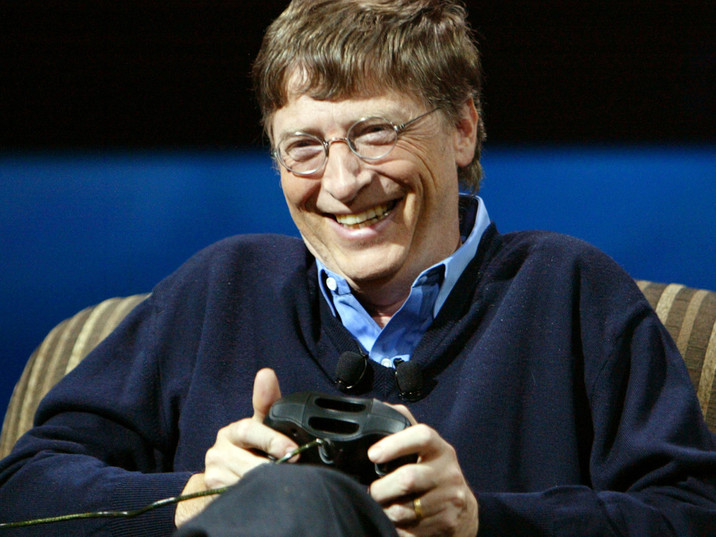What Bill Gates did next
Six months on from leaving Microsoft, Gates explains how tech can help the disadvantaged

It's now been half a year since Bill Gates stepped down from his full time involvement in Microsoft. So what's he doing?
Gates has decided to write an annual letter from his foundation to let us know – and he still sees technology as a centrepoint of what he does – though with the caveat that "technology is only useful if it helps people improve their lives, not as an end in itself." He also reflects on his years at the corporation.
"I want to share in a frank way what our goals are and where progress is being made and where it is not," he writes. "I will try to be…candid."
Gates openly admits that his previous work may cause him and the Foundation some problems down the line. "I am sure I will make mistakes in over-applying some elements from my previous experience and will need to adjust."
"For instance, the countries where Microsoft does business are far more stable and have a lot more infrastructure than most of the places where the foundation does its work, so I'll need to better appreciate how difficult it will be to execute our strategies."
On his work at Microsoft
Gates says that his friends were concerned that he wouldn't find the foundation work as engaging or rewarding as his work at Microsoft. "I loved my work at Microsoft and it had been my primary focus for over 30 years. I too would have worried if I had paused and thought about it enough."
Get daily insight, inspiration and deals in your inbox
Sign up for breaking news, reviews, opinion, top tech deals, and more.
The philanthropist also speaks of the empowerment that PC technology gave to individuals. "My job at Microsoft had… magical things. There was an opportunity for big breakthroughs - including changing computers from being expensive and only for big companies to being inexpensive and empowering to individuals with a wide range of great software for almost any task. I wanted a personal computer with great software for myself and everyone else."
"We were always taking risks - some of which didn't pay off and some of which did. Most people don't have even one job that has all those elements, and my friends thought I wouldn't be able to avoid comparing my new work to what I had had at Microsoft."
On what he's doing now
Gates says that despite the 'high bar' of his work at Microsoft, he is enjoying the work at the Foundation. "Although there are many differences, it also has the three magical elements. First there are opportunities for big breakthroughs - from discovering new vaccines that can save millions of lives to developing new seeds that will let a farming family have better productivity, improve their children's nutrition, and sell some of the extra output."
Gates says a lot of his ideas are influenced by technology and "technological solutions like new seeds and vaccines," and takes of an "optimism about technology [as a] fundamental part of the foundation's approach."
"Technology is also a personal passion of Melinda's and mine. So we try to point scientific research toward the problems of the poor, like agriculture. This is why we tend not to fund other important things like building health clinics or roads, which are better left to governments."
On technology helping the disadvantaged
Gates also freely admits that some people are critical of this approach, "saying either that the problems can't be solved with technology, or that the technology only works if it reaches the people who need it."
He believes there is merit with both sides of the argument. "In agriculture, the foundation is funding research into new seeds, but we are also funding pilot projects for non-technological solutions like new agricultural extension services that teach farmers basic techniques like irrigation or crop rotation."
"And when we do fund research on technology, we emphasise that it must take into account the needs of the poorest. For instance, new seeds must be tailored for the climates in which they'll be grown, and they have to produce the kind of foods that people like to eat in those areas. Technology is only useful if it helps people improve their lives, not as an end in itself."
-------------------------------------------------------------------------------------------------------
Now read Heavyweights of the supercomputing world
Sign up for the free weekly TechRadar newsletter
Get tech news delivered straight to your inbox. Register for the free TechRadar newsletter and stay on top of the week's biggest stories and product releases. Sign up at http://www.techradar.com/register
Dan (Twitter, Google+) is TechRadar's Former Deputy Editor and is now in charge at our sister site T3.com. Covering all things computing, internet and mobile he's a seasoned regular at major tech shows such as CES, IFA and Mobile World Congress. Dan has also been a tech expert for many outlets including BBC Radio 4, 5Live and the World Service, The Sun and ITV News.